- Nvidia
- Tata Consultancy Services
- TCS
- Artificial Intelligence
- Nvidia AI
- TS AI for Business Study
- Nvidia AI Enterprise
- Nvidia Omniverse
- Nvidia NIM Agent Blueprints
- Jay Puri
- Siva Ganesan
- Anupam Singhal
- John Fanelli
TCS Expands Pact With Nvidia To Introduce Industry-Specific Solutions
- By MT Bureau
- October 24, 2024
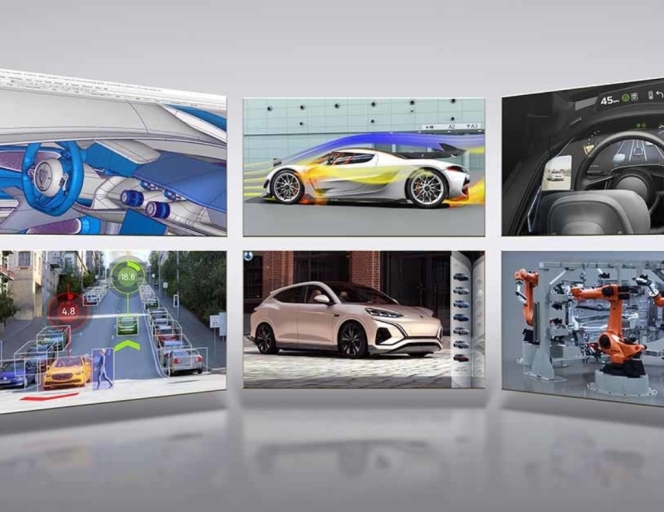
Tata Consultancy Services (TCS), a global leader in IT services, consulting, and business solutions, has expanded its collaboration with Nvidia to launch industry-specific solutions and offerings that will help customers adopt Artificial Intelligence (AI) faster and at scale. These solutions will be offered through TCS’ new business unit focused on Nvidia, under its AI Cloud business unit.
It builds on a collaboration with Nvidia for over five years, brings together the complementary capabilities of both organisations and will offer tailored offerings for various industries.
According to a recent TS AI for Business Study, enterprises worldwide are racing to adopt AI but there is no consensus on an AI adoption strategy. The journey for every enterprise is unique and involves an interplay of AI and existing enterprise capabilities.
The partners believe that AI adoption at scale requires an intimate understanding of the enterprise and its practices and building AI models that are customised for the context. The new unit will design and deliver curated AI adoption strategies by leveraging global centres of excellence (CoEs), investments in the Nvidia AI platform - including accelerated computing and AI software, and the Nvidia AI Enterprise and Nvidia Omniverse platforms - and skilled resources
The new unit also offers TCS’ proprietary framework, which brings together its deep domain expertise, enterprise contextual knowledge and Nvidia AI technology for building and deploying agentic AI solutions - including nvidia NIM microservices and Nvidia NIM Agent Blueprints, which are part of the nvidia AI Enterprise software platform and Nvidia AI Foundry – to deliver value at scale to customers.
The partners aim to build innovative, value chain-centric solutions and offerings for industry verticals on the Nvidia AI platform including:
TCS Manufacturing AI for Industrials; TCS AI Spectrum for BFSI; TCS Cognitive Visual Receiving; AI-Native Telco Offerings and TCS AI-based Autonomous Vehicle Platform.
The autonomous vehicle platform will see TCS’ IoT and Digital Engineering unit work with Nvidia to leverage generative AI and deep learning technologies, such as Omniverse for simulation and Nvidia AI Enterprise for synthetic data generation, to accelerate the development of end-to-end autonomous features and capabilities for automotive OEMs and tier 1 suppliers.
Jay Puri, Executive Vice-President of Worldwide Field Operations, Nvidia said, “The fusion of TCS’ deep industry expertise with Nvidia AI technology is set to introduce a new era of intelligent enterprise transformation. TCS’ new Nvidia business unit is poised to accelerate AI and simulation with Nvidia AI Enterprise for building agentic AI solutions and Nvidia Omniverse for building physical AI solutions, paving the way for AI-driven innovation across India and the world.”
Siva Ganesan, Head, AI Cloud Unit, TCS said, “Curated AI journeys are derived at the intersection of deep-domain and deep-tech. This is a space that TCS has excelled at during every business transformation cycle. Our unique vantage point, at the intersection of business and technology, helps us identify the right opportunities for our customers. With the innovative and efficient Nvidia AI platform, and our wide scale and proven track record in delivering value, our customers now have a means to faster value realisation.”
Anupam Singhal, President – Manufacturing, TCS said, "Manufacturers can now achieve unprecedented accuracy and access the tacit knowledge to optimise their operations, improve decision-making, and drive impactful innovation. This is possible with TCS' Manufacturing AI for Industrials offering, which leverages Nvidia technology to harness the power of LLMs (large language models) and is fine-tuned with TCS' deep manufacturing industry expertise.”
The collaboration with Nvidia is part of TCS' broader efforts to strengthen its AI-readiness and build end-to-end capabilities powered by Nvidia technology to foster enterprise-wide AI transformation for its key customers.
John Fanelli, Vice-President, Enterprise Software, Nvidia said, “Factories, warehouses and robotics are the next grounds for physical AI innovation at scale. Combining cutting edge AI and simulation capabilities can unlock unprecedented potential for intelligent manufacturing operations for TCS clients.”
To help manufacturers embrace the next wave of digital manufacturing, TCS is also working on a new suite of digital twin solutions built on the Nvidia Omniverse development platform, enabling clients to design, simulate, operate, and optimize products and production facilities across heavy industries:
Factory of the Future: Real-time factory planning, monitoring, and predictive maintenance in a virtual environment, reducing downtime and speeding up time to market.
In-Car Digital Twin: Autonomous vehicle simulation using Omniverse’s physics-based simulations, reducing the need for physical testing.
Aero Care Efficiency: Digital twin creation for aircraft components, enabling immersive training, enhanced problem-solving and the early detection of failures, helping improve safety and reduce operational risks.
Smart Farming Digital Twin: Farming scenario simulations with real-world physics, including soil interactions, terrain analysis, and weather conditions to improve equipment performance, process optimisation and sustainability in modern agriculture.
ZF, BMW Sign Long-Term Supply Agreement For Drive Technologies
- By MT Bureau
- February 03, 2026
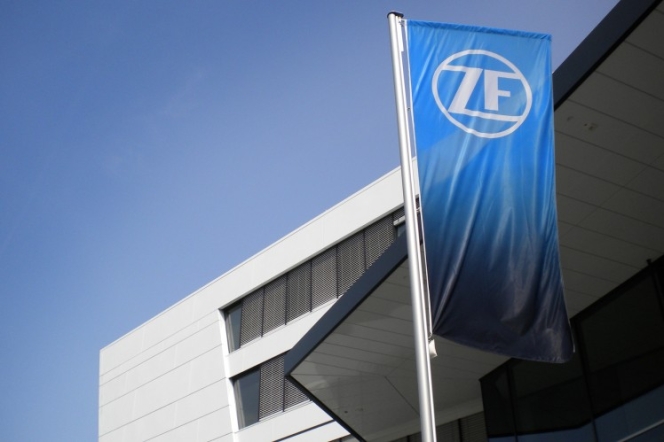
German tier 1 supplier ZF Friedrichshafen and the BMW Group have entered into a long-term supply agreement for passenger car drive systems. The contract, valued at several billion euros, extends until the late 2030s.
The agreement focuses on the supply and continued development of the 8-speed automatic transmission (8HP). The partners aim to support low-emission mobility and maintain technological flexibility during the industry transition.
A central component of the partnership is the technical evolution of the 8HP transmission kit to meet the requirements of electrified drives. The development will focus on increasing efficiency and performance for future vehicle concepts.
Mathias Miedreich, CEO of ZF, said, “Together with BMW, we are sending a strong signal for innovation, efficiency, and sustainability in an industry undergoing dynamic change. This agreement highlights the strategic importance of our 8-speed automatic transmission as a key technology for the transformation of drive systems.”
The duration of the contract provides both ZF and BMW with planning stability in a changing market. ZF aims to strengthen its position as a system supplier while reducing risks through close collaboration with the carmaker.
Sebastian Schmitt, Head of ZF's Electrified Drive Technologies division, explained, “The new agreement with BMW shows how important long-term planning horizons are for technological advancements. It creates clarity and stability for both companies and enables us to align the next generation of the 8HP specifically toward efficiency, performance, and long-term viability.”
Leapmotor Selects Aumovio For Safety Technologies
- By MT Bureau
- February 02, 2026
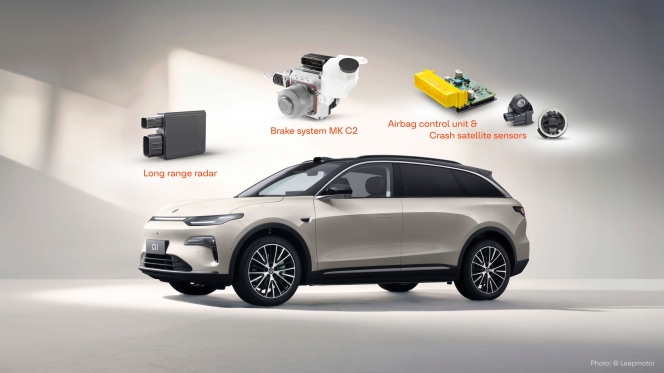
Aumovio has entered a supply agreement with Chinese electric vehicle manufacturer Leapmotor to provide safety components for the carmaker’s B and C platforms.
Several models within Leapmotor’s B platform now utilise Aumovio's long-range radar, electric parking brake and airbag control unit (ACU). Models on the C platform, including the C10, C11 and C16 SUVs, feature the latest generation of the MK C2 one-box brake system, alongside the long-range radar and ACU.
The project was completed with a development cycle approximately one-third shorter than traditional automotive timelines. Aumovio attributed its speed to ‘local-for-local’ strategy in China, where the company operates 20 sites and employs around 10,000 staff. In 2024, Aumovio held a 14 percent share of market revenue in the region.
The supplied technologies include:
- MK C2 Brake System: A unit combining the master cylinder, electronic brake system, and brake booster. It is produced locally in Shanghai.
- Long-Range Radar: A sensor with a detection range of up to 280 metres, used for driver assistance across both platforms.
- Airbag Control Unit (ACU): Integrated with crash satellite sensors, these components are manufactured in Changchun.
Boris Mergell, Head of the Safety and Motion business area at Aumovio, said, “Pairing ‘China speed’ with ‘German quality’ technologies helped us to support a rapid roll-out with our latest safety technologies. This underscores Aumovio’s course towards an adaptive powerhouse that works flexibly and closely with customers to innovate. It also shows that we continue to strengthen our customer relationships in the important market China.”
The partnership supports Leapmotor’s international presence. The B10 and B05 models, which feature Aumovio's ACU and radar technology, were showcased at the IAA 2025 in Munich as part of the manufacturer's European entry.
LTTS Secures Multi-Year Deal From Automotive OEM For Engineering And R&D
- By MT Bureau
- January 28, 2026
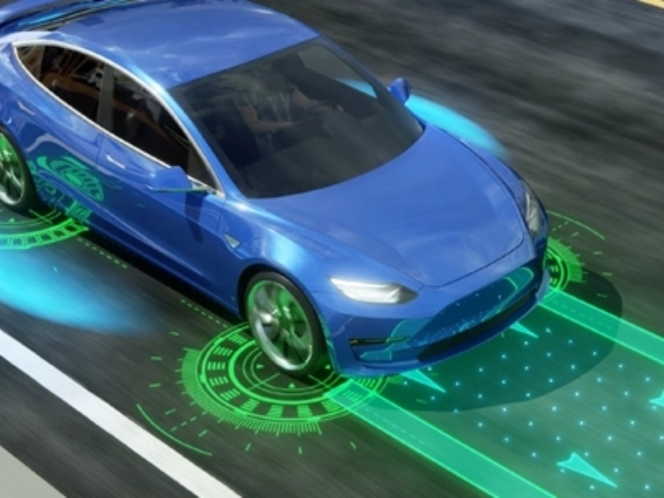
Bengaluru-headquartered ER&D company L&T Technology Services (LTTS) has announced a multi-year engagement within its mobility segment from an automotive manufacturer. The agreement involves software, connectivity and digital engineering services across vehicle technology domains. This win follows the company’s investments in R&D labs and mobility infrastructure designed for programs with global manufacturers.
The engagement covers mobility engineering capabilities, including embedded systems, digital platforms, verification and validation, cloud integration and cybersecurity. LTTS intends to use its engineering expertise and delivery frameworks to support the customer's technology roadmap.
At present, LTTS operates 22 design centres and 100 innovation labs globally.
The agreement strengthens the partnership between LTTS and the automotive manufacturer in the area of mobility engineering. The company provides design, development, and testing services across the mobility, sustainability, and tech segments.
Alind Saxena, Executive Director and President, Mobility and Tech at L&T Technology Services, said, “We are proud to deepen our partnership with the valued customer through this strategic engagement. LTTS brings together domain-led engineering, secure development practices and excellence in global delivery to accelerate the future of premium mobility. The win reflects the trust placed in our teams and our commitment to delivering world-class engineering at scale”.
Valeo And NATIX Network Partner To Develop Open-Source World Foundation Model
- By MT Bureau
- January 25, 2026
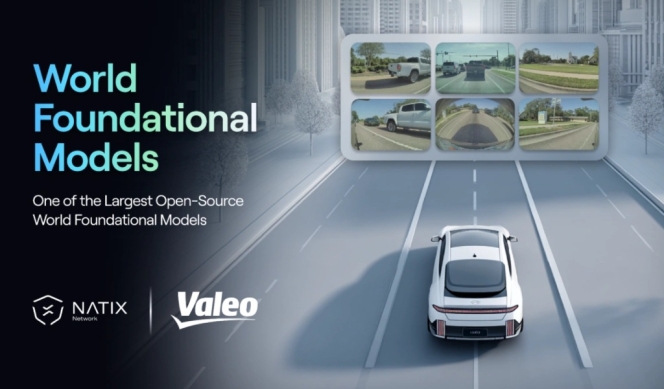
French technology company Valeo and NATIX Network have announced a partnership to develop a multi-camera World Foundation Model (WFM). The project combines Valeo’s research in artificial intelligence and generative modelling with NATIX’s decentralised physical infrastructure network (DePIN) to create an open-source platform for autonomous driving and robotics.
The initiative aims to move beyond perception-based models by creating a system capable of predicting future states and reasoning about physical interactions in a four-dimensional environment. The model will be trained using NATIX’s data network, which has collected 600,000 hours of video data across the US, Europe and Asia over seven months. This data provides the multi-camera inputs necessary for the spatial perception required by autonomous vehicles and robots.
The partnership builds upon Valeo’s existing open-source frameworks, VaViM (Video Autoregressive Model) and VaVAM (Video-Action Model). While these frameworks were previously trained primarily on front-camera datasets, the integration of NATIX’s multi-camera network expands the AI’s field of vision to 360 degrees.
Under the open-source framework, the partners will release models, datasets and training tools. This approach is intended to allow the research community to fine-tune models and benchmark physical AI across various driving conditions and geographic regions. The collaboration seeks to accelerate the deployment of end-to-end AI models by learning from real-world edge cases captured by vehicles in operation.
Marc Vrecko, Chief Executive Officer, Valeo’s Brain Division, said, “Since our creation in 2018, Valeo’s AI research center has been at the forefront of AI research in the automotive industry, especially in the fields of assisted and autonomous driving. Our goal has always been to advance mobility intelligence safely and responsibly. By combining Valeo’s generative world modeling research expertise with NATIX’s global multi-camera data, we are accelerating both the quality and the accessibility of next-generation end-to-end AI models, enabling the research community to build upon strong open models.”
Alireza Ghods, CEO and Co-Founder, NATIX, added, “WFMs are a once-in-a-generation opportunity — similar to the rise of LLMs in 2017–2020. The teams that build the first scalable world models will define the foundation of the next AI wave: Physical AIs. With our distributed multi-camera network, NATIX has a clear advantage of being able to move faster than large OEMs.”







Comments (0)
ADD COMMENT